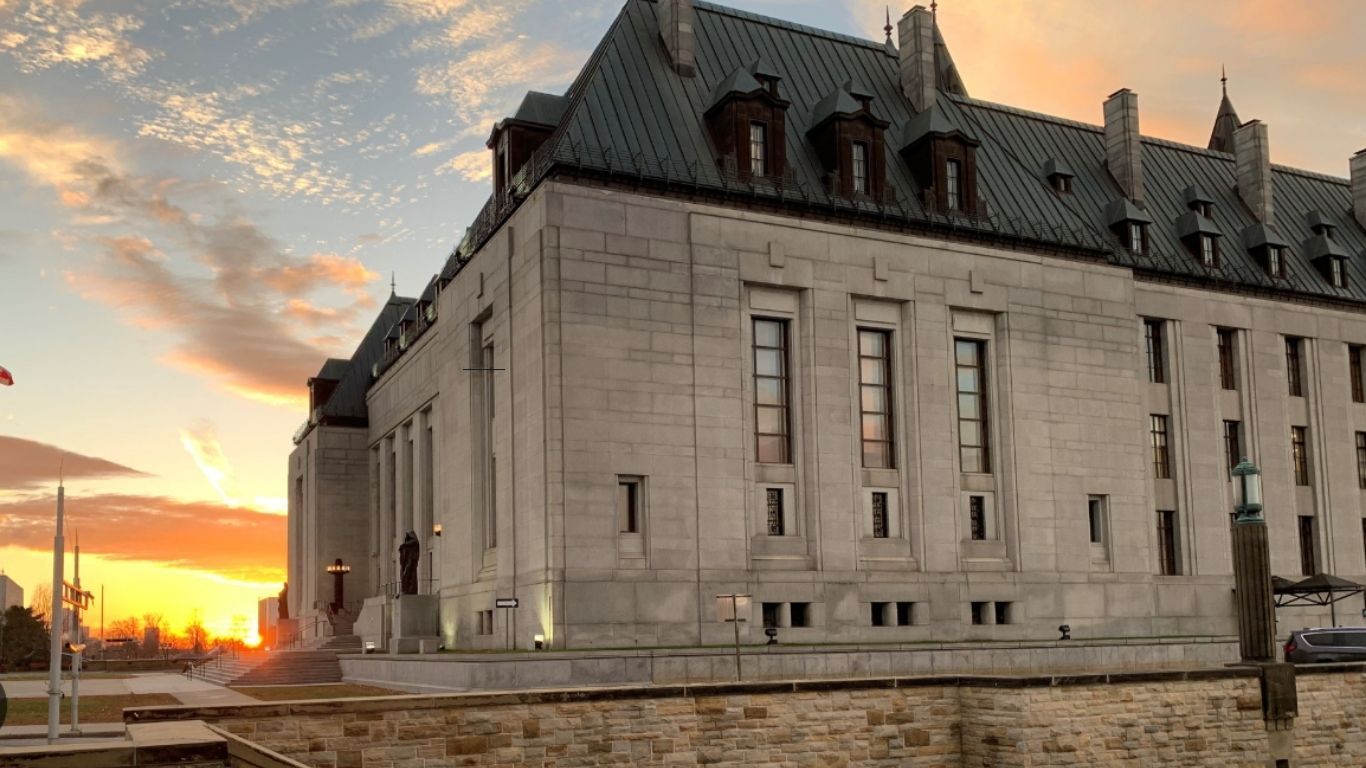
The Supreme Court of Canada has ruled that Quebec has the right to ban residents from growing their own cannabis at home.
The landmark case, which had worked its way through the courts since 2019 when it was raised by Quebec resident Janick Murray-Hall, argued that such a ban was unconstitutional.
The Quebec government had argued that they had the right to ban growing cannabis at home entirely, and were doing so to protect young people. The Supreme Court dismissed the appeal of that ruling, concluding that the provincial government’s ban on growing cannabis at home was not in conflict with the federal law that allows Canadians to grow up to four plants at home.
While Murray-Hall’s legal team was initially successful, the provincial government appealed and, in September 2021, Quebec’s Court of Appeal reversed that ruling, saying the province did in fact have the right to ban growing cannabis at home. His legal team appealed that ruling, which then led to the final Supreme Court ruling.
Federal regulations allow Canadians to grow up to four cannabis plants per home. Provinces are allowed to place restrictions on that allowance, such as limiting the number of plants and/or requiring them to be grown in a secure area, or out of view of the public.
However, in the development of the Cannabis Act and Regulations, the federal government argued that limiting the number of cannabis plants to zero, or banning them outright, would be out of the scope of their powers.
This is similar to how there is a federal age limit of 18 for access to alcohol, but provinces can raise this amount. All provinces and territories in Canada except Alberta and Quebec have established 19 as the age of access for cannabis. Alberta’s is 18 and Quebec’s is 21.
Quebec and Manitoba were the only two provinces to challenge that authority, banning home growing entirely. The ruling could potentially impact another case in Manitoba seeking to overturn that province’s own ban.
Murray-Hall’s lawyers argued that the provincial ban, specifically sections five and ten of the provincial cannabis act, was in conflict with the federal act.
In the reason for judgement, Justice Richard Wagner wrote:
“I conclude that [sections] 5 and 10 of the provincial Act do not frustrate the purposes stated in the federal Act, including that of reducing the presence of criminal organizations in the cannabis market, and that they are operative under the doctrine of federal paramountcy. The provincial Act’s public health and security objectives and its prohibitions are, to a large degree, in harmony with the objectives of the federal Act, and there is no basis for finding a conflict of purposes.”
The court’s ruling was unanimous.
Despite the implications the case could have on the issue of provincial and federal jurisdictional authority, the federal government did not intervene in the case. Five provinces did intervene: BC, Alberta, Saskatchewan Manitoba, and Ontario.
Quebec’s ban on home-grown cannabis does not apply to those authorized to grow cannabis for medical purposes. The fine for being caught growing cannabis at home without a medical licence is a fine of up to $750.
Jack Lloyd, lead counsel in a similar case challenging Manitoba’s ban on home-grown cannabis says that while he is disappointed by the Supreme Court’s ruling on the Quebec issue, he doesn’t feel it undermines his case.
“While we are disappointed for Quebec we are not of the view that Manitoba’s law is valid simply because of this ruling.”
“Quebec’s goal was to strengthen their Provincial monopoly and sales, like R v Comeau,” he continues. “Manitoba’s goal is to issue penal sanction against cannabis growers, which is a purely criminal issue and thus outside of the Province of Manitoba’s jurisdiction.”











